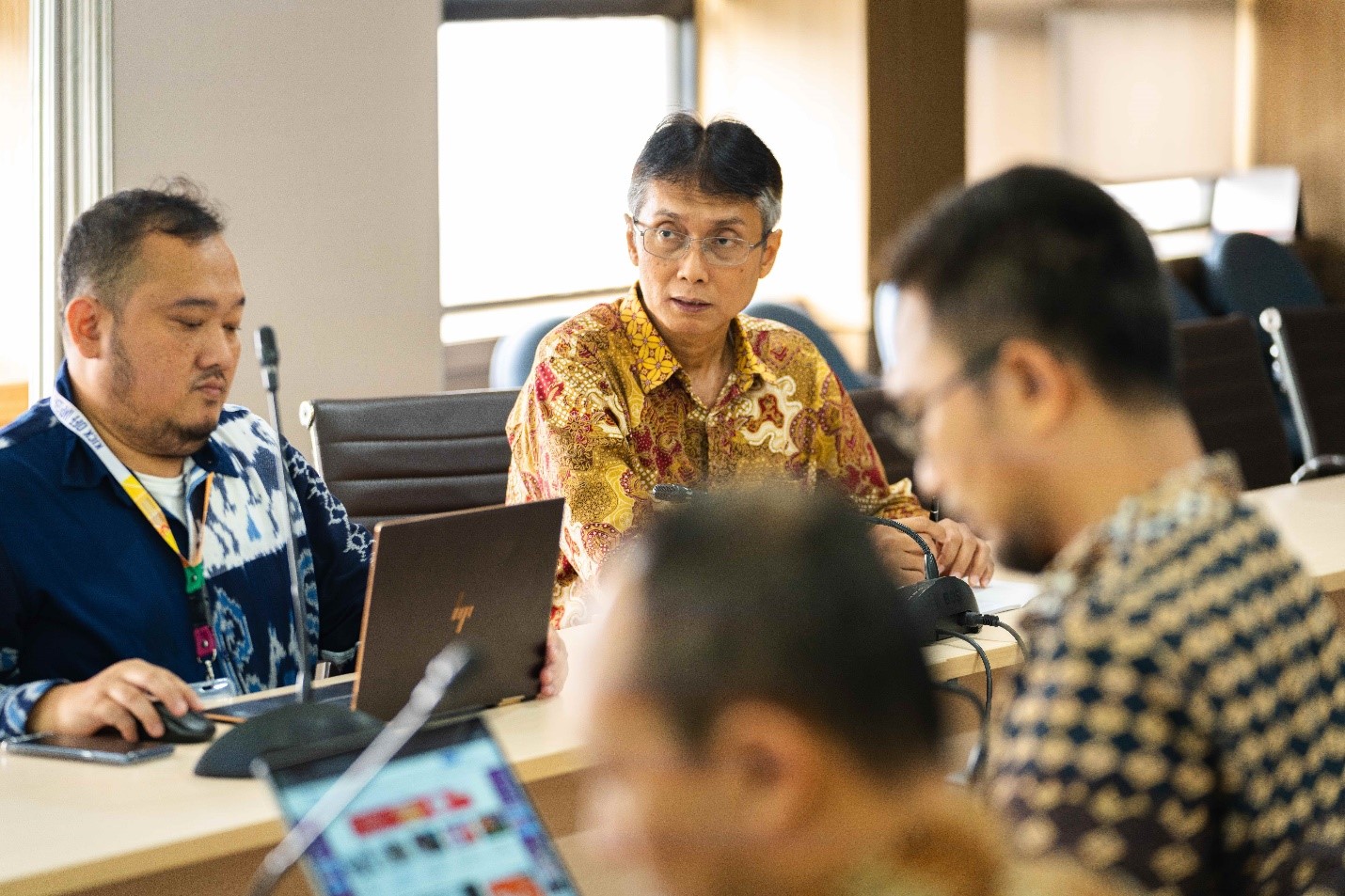JICA Interviewee profile
Name: Dr. Sri Bimo Pratomo
Country of Origin: Indonesia
Faculty and University: Iwate University, Japan
JICA Course: Materials Engineering
Research Area/Theme: Metallurgy, Materials engineering specializing in cast iron and special steel
Dr. Sri Bimo Pratomo is the Head of the Center for Formulation, Implementation and Enforcement of Industrial Standardization of the Ministry of Industry. Besides having this position, he is a special lecturer at the Faculty of Manufacturing Engineering, Department of Metallurgical Engineering at Universitas Jenderal Ahmad Yani Bandung. He shares his experience as a JICA scholar during his MS and as a PhD scholar under another program in Japan.
What led him to JICA and Japan
Sri Bimo Pratomo heard about the JICA program from a JICA scholar during his days at the Metal Industries Development Center (MIDC) of the Ministry of Industry in Indonesia. Before joining Iwate University as a long-term JICA trainee, Dr. Bimo had been to Japan twice. His first visit was in 2000, when he took part in a training programme jointly organized by MIDC and the Nagoya Industrial Science Research Institute. He visited Japan again in 2002 for attending a short-term training programme organized by JICA. These visits had kindled in him a passion for conducting research in the country. The technical prowess of Japan’s infrastructural facilities awed him. He was equally impressed by the inclusive working atmosphere of Japan. At the time of his training at Nagoya Industrial Research Institute in Japan, he had already decided that he would return.
Talking about what brought him to Japan, Dr. Bimo says, “When I first joined the Metal Industries Development Centre of the Ministry of Industry as a government employee in 2000, I was assigned to attend training at the Nagoya Industrial Research Institute in Nagoya, Japan for two months. At the time, I thought Japan was an ideal place to pursue my studies because the country was very tolerant and had advanced technology.”
How JICA has impacted his professional life
After his MS program under the JICA scholarship at the Iwate University, he continued into a PhD at the same institution. With some financial help from his supervisor and bearing field expenses personally, Dr. Bimo worked on special steel for his PhD thesis. His postgraduate and doctoral studies were well-aligned with the metallurgical work ongoing at his previous workplace. “In 2010, after returning from Japan with a Ph.D. in engineering, I was also appointed as the head of the Metal Casting Section at the Metal Industries Development Centre,” he adds.

Two most significant lessons from Japan’s experience
According to Dr. Bimo, discipline and hard work are the two important lessons that he learned from his experience in Japan and can be applied to the Indonesian industry. “Discipline in carrying out plans and evaluating work results can propel the industry forward, while hard work is required for the industry's advancement in order to compete with industries abroad,” Dr. Bimo says.
Perspective changes from foreign education under JICA
Dr. Bimo believes that his home country could imbibe certain values from the Japanese culture. He explains, “Some of the things I learned while studying in Japan are the Japanese's seriousness, cleanliness, and learning from experience. This new perspective can be used to help Indonesia solve problems and move forward.”
Dr. Bimo is also currently an important counterpart in JICA's technical cooperation projects, which contributes to the strengthening of bilateral relations. He adds, “The JICA Scholarship Program helps increase the capacity of the person who has studied in Japan to improve technological skills so that it can be used to develop in the institution when returning to Indonesia.”
How the initiatives by JICA will help developing countries like Indonesia
According to Dr. Bimo, Indonesia has a lot to learn from the technological advances in Japan. “Both Japan and Indonesia face the problem of earthquakes. Japan, which already has better technology for earthquake mitigation, should be able to share this knowledge with Indonesia,” he says. Dr. Bimo hopes for productive future collaborations at the government-level, between Indonesia and Japan, and believes that these diplomatic relations could be manifested best by alumni of the JICA scholarships, like himself.

Advice for Prospective JICA Scholars
Dr. Bimo says, “I believe that Japan is the best place for young Indonesian students to pursue technology. This is because the Japanese have made tremendous technological advances, and there is much to learn from them. Also, the people of Japan are extremely friendly and tolerant, making the stay of international students in the country more comfortable.”




scroll